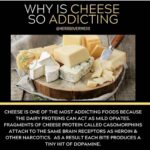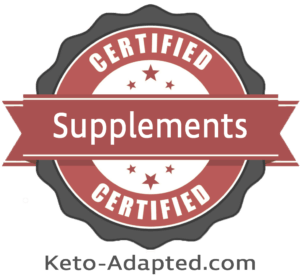This makes cheese addictive. Casein comprises the majority of protein in dairy milk, and the concentration of casein in cheese is even higher, as it takes around 10 pounds (4.5 kg) of milk to make 1 pound (0.5 kg) of cheese.
When you digest casein, your body breaks it down into smaller compounds called casomorphins.
Casomorphins can cross the blood-brain barrier and attach to dopamine receptors in your brain. This causes your brain to release dopamine, a neurotransmitter related to feelings of pleasure and reward Many people find they have increased anxiety within minutes of consuming dairy products.
Dairy is very inflammatory for many people. It can cause issues with constipation, diarrhea, bloating, as well as causing high histamines. When histamines are high, they block neurotransmitters like serotonin and GABA (the feel good, relaxing brain chemicals).
Interestingly, cheese’s high fat content may make it easy to crave.
Food cravings are triggered by the part of your brain that handles reward. The release of endorphins after eating can be particularly pleasurable, leading you to want more of the same experience.





